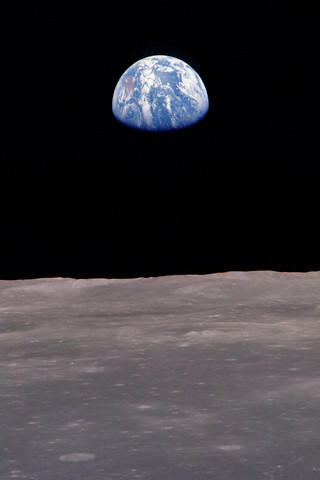
So, a couple of months back, commenter agauntpanda was nice enough to buy me Cordelia's Honor, the omnibus edition of Lois McMaster Bujold's Vorkosigan Saga, about a talented spaceship captain named Cordelia Naismith who ends up married to a high-ranking military officer of her planet's rival world, and is caught in that new world's Imperial succession struggle as a result. The two novels in the volume are good, propulsive fun. Cordelia herself is both badass and romantic: think Princess Leia with a reasonably high tolerance for ordering people's head's chopped off, and without the wiffling around about whether to hook up with Han. I tore through the book fairly quickly and found myself reading it even though I'm incredibly busy right now. And it also helped me clarify a couple of things that I like most in my science fiction that I want to discuss a bit here.
First, I tend to resonate most to science fiction where a clear connection to Earth remains. There are exceptions, of course, most notably Star Wars and the Foundation novels, which I'm about to revisit. But a universe has to be exceptionally well-conceptualized for me to connect to it as well as I do to speculative fiction about Earth's future. I think one of the reasons I love books like Ender's Game and Speaker for the Dead as well as Kim Stanley Robinson's Mars trilogy is that they're intimately connected to concerns about Earth that I understand. The Bugger wars are terrifying, as are the moral conditions of Ender's victory in Earth's service. The overpopulation of Earth that sparks the mission to Mars in Robinson's books, and the class divides that begin to tear the planet apart aren't actually that speculative. Even something like the early sequences of this summer's Star Trek reboot that show Kirk on Earth isn't explicitly about a social message, but offer the tantalizing image of a familiar place, in this case Iowa farm fields, transformed into something strange and wonderful, like a spaceport. Earth's a distant fragment in Cordelia's Honor, and I found that I missed it. Because there are two societies that Bujold is trying to develop in a story that's extremely plot- and character-driven, I found it hard to get immersed in either. Unlike Star Wars, which takes us from the crime-ridden Cantina in Mos Eisley to the heart of the Imperial high command, we don't get to see both Beta and Barrayar top-to-bottom, and I wanted more of them.
Second, I like science fiction best when it shows how technological advances have shifted the shape and practices of society. One of the best things in Ender's Game is the novel's description of how information dissemination on the internet makes the fragile political entities of Earth vulnerable to manipulation. The differing ways a cure for aging affects Mars and Earth forms one of the central conflicts of the Mars trilogy. The technology that is most important in Cordelia's Honor is an artificial womb, and while it's implied that being freed from nine months of pregnancy frees women on Cordelia's planet to take up a wider range of roles in society, the chauvinism on her husband's planet clearly runs far beyond pregnancy. I'd have been interested in a discussion of the moral implications of the weapons their respective planets use in combat. Cordelia's countrymen invent, and deploy, a weapon that turns an enemy's attack against itself, while her husband's soldiers use personal combat devices that fry a victim's nervous system. They're vicious in different ways, and on different scales, but after some early discussion, any further discussion of those implications, and what they say about the society where the weapons originate, are largely shelved.
But despite these preferences, Cordelia's Honor is a lot of fun, and frequently quite sweet despite the occasional attempted rape, beheading, and coup. I like romances between equals, and science fiction increasingly feels to me like one of the few places that's genuinely possible--there reliance on female insecurity in most romantic comedies is disturbing to me as a symbol of inequality. If the future gives us love stories, that's one form of progress I'll embrace wholeheartedly.